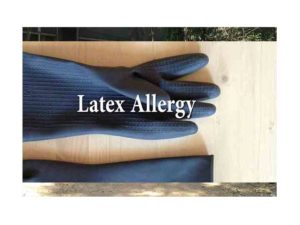Allergy Medicines
These are the medicines used to prevent or treat allergic conditions. These include
1. Antihistamines
Histamine is a biologically active substance that enhances inflammatory and immune responses of the body. It also has physiological function in the gut. Histamine also acts as neurotransmitter. Drugs which that antagonize these effects of histamines are called antihistamines.
Classification of Antihistamines
H1 antihistamines: mostly used to treat allergic disorders and mast cell-mediated disorders.
H2 antihistamines: indicated primarily for gastric reflux disease
H1 antihistamines:
First generation or sedative antihistamines: Have a central effect. They can cause sedatives.
Promethazine
Diphenhydramine
Brompheniramine
Hydroxyzine
Cyproheptadine
Dimenhydrinate
Second generation or less sedative antihistamines
Loratadine
Desloratadine
Cetirizine
Levocetirizine
Fexofenadine
Azelastine
Uses of antihistamines:
Antiallergic agent
Allergic conjunctivitis
Urticaria,
Contact dermatitis
Angioedema
Rhinorrhea
Motion sickness
Antiemetic agent
Side effects of antihistamines
Side effect are more common with first generation antihistamines.
Sedation
Dry mouth
Mydriasis
Dizziness,
Tinnitus,
Urinary retention
Tachycardia
Headaches
H2 antihistamines:
Indicated primarily for gastric reflux disease because they reduce the production of stomach acid.
Famotidine
Cimetidine
Ranitidine
Lafutidine
Nizatidine
Roxatidine
2.Decongestants:
This type of allergy medicines are used to relieve a stuffy nose and sinus pressure. But decongestant can only be used for shorter time usually for three days. Longer time can cause a rebound effect, means once you stop the medicines your symptoms will actually get worse.
Decongestants include:
- Oxymetazoline
- Pseudoephedrine
- Phenylephrine
- Cetirizine with pseudoephedrine
One should be kept in mind that history of abnormal heart rhythm, heart disease, history of stroke, anxiety, a sleep disorder, high blood pressure, or bladder issues is important before commencing decongestant medication.
3.Eye drops and nasal sprays:
These type of allergy medicines help relieve itchiness and other allergy-related symptoms for a short time. However, depending on the product, you may need to avoid long-term use.
Like decongestants, overusing certain eye drops and nose drops can also cause a rebound effect.
4.Corticosteroids:
Corticosteroids can help with inflammation and immune responses. These do not cause a rebound effect. Steroid nasal sprays are commonly recommended as a long-term, useful way to manage allergy symptoms. Nasal steroid medications are the most effective medications.
5.Immunotherapy:
Your doctor may recommend immunotherapy, or allergy shots if you have severe allergies. You can use this treatment plan in conjunction with medications to control your symptoms. These shots decrease your immune response to particular allergens over time. They do require a long-term commitment to a treatment plan.



